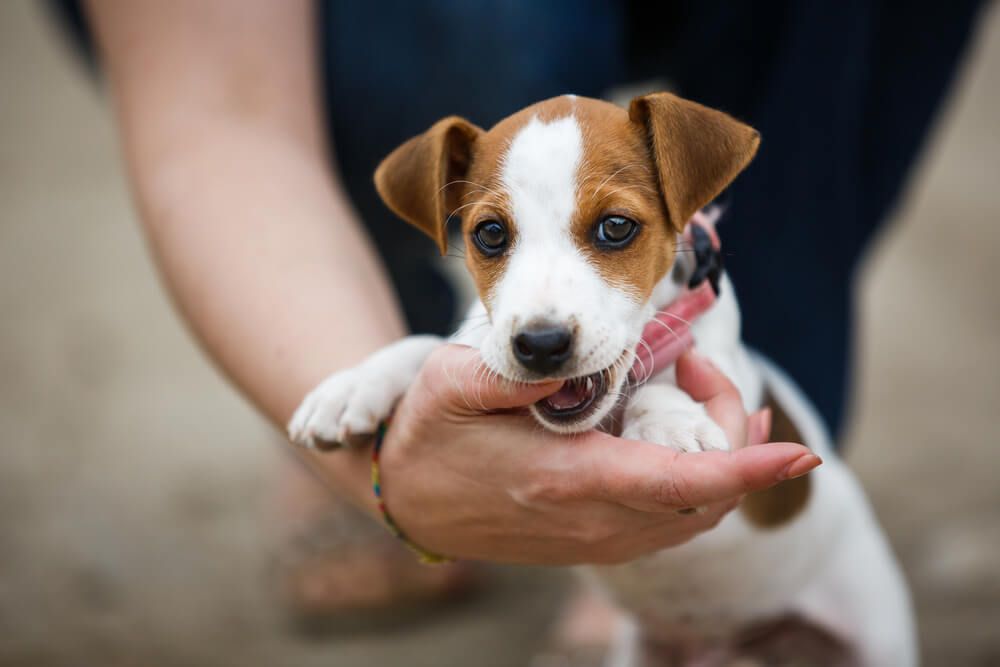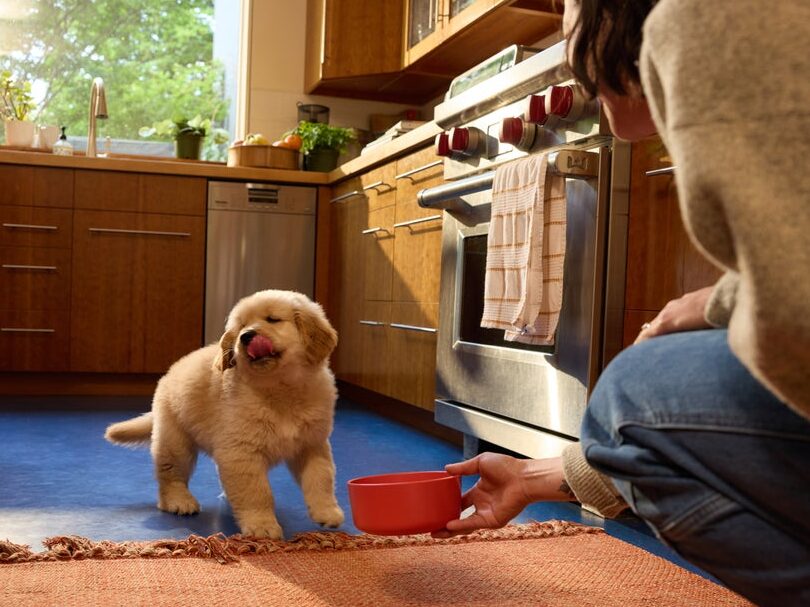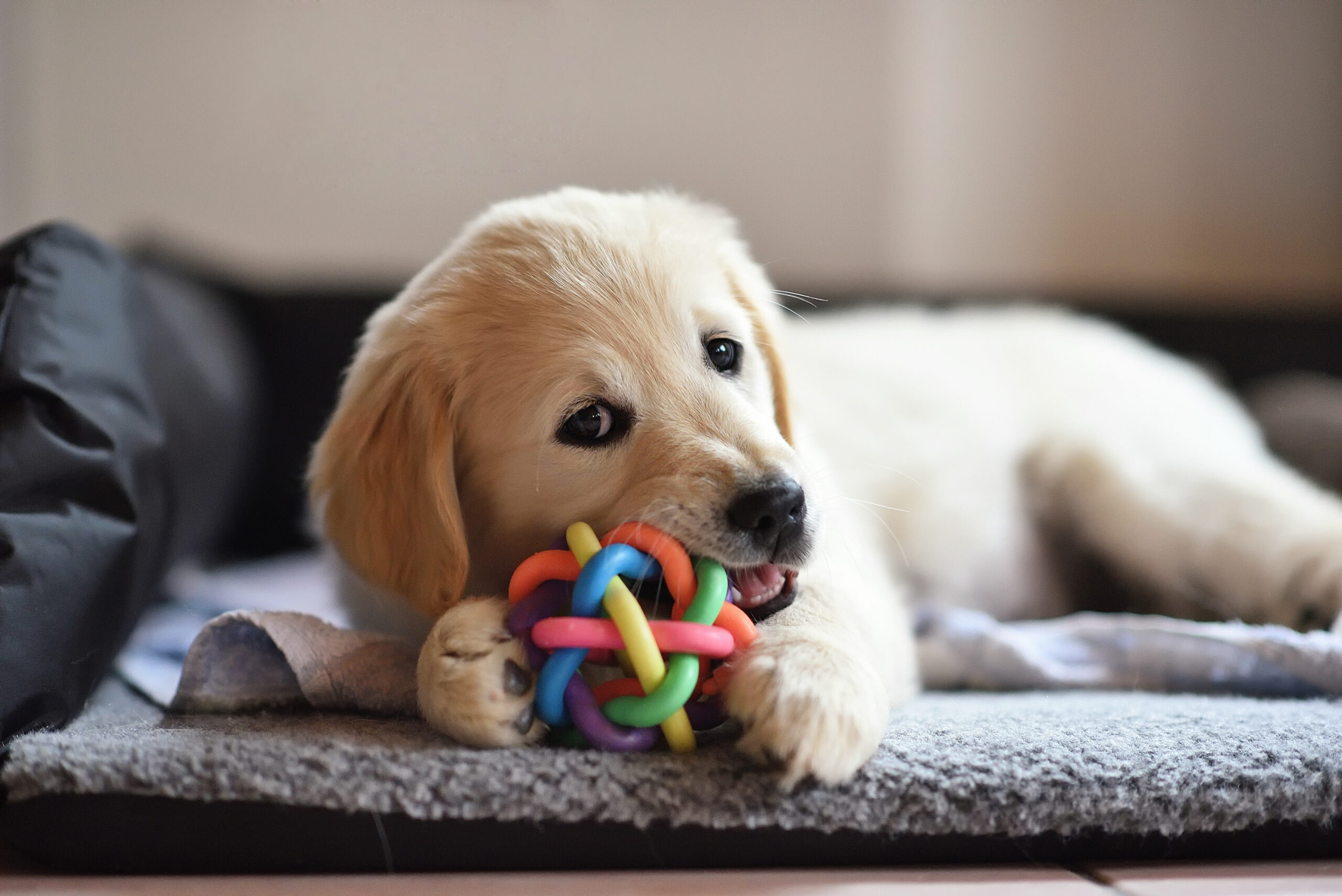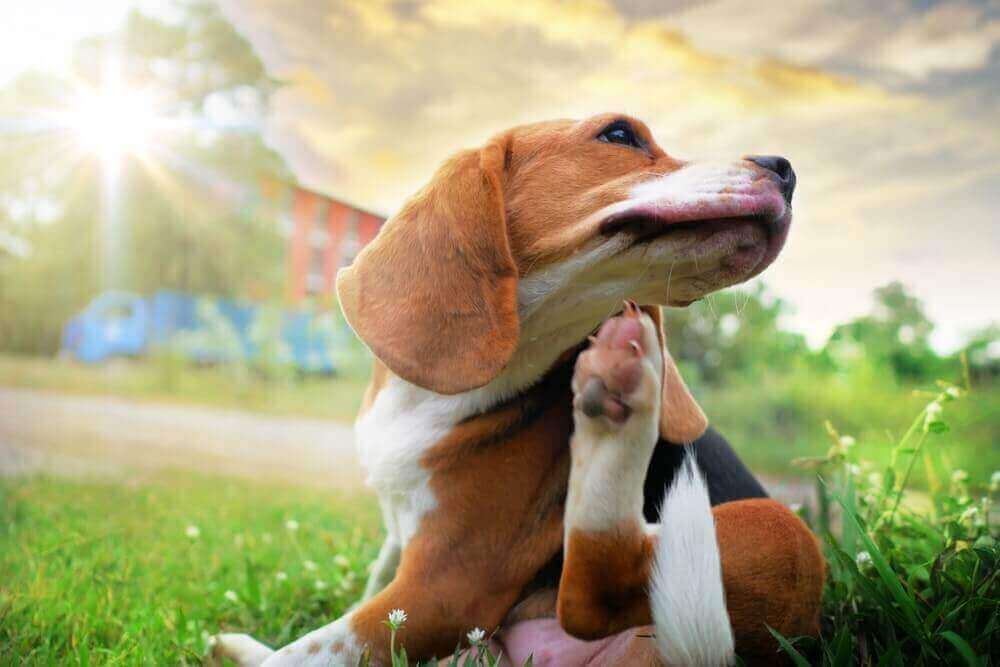Hey Ollie blog readers! We’re offering you an exclusive 60% OFF your starter box! Try now!
Ahh, puppy bites! While some people enjoy the feeling of puppy nibbles, it’s not something you want to encourage. There’s a fine line between harmless puppy biting and an adult dog with full-sized teeth who’s learned biting is an acceptable behavior. Here are 5 tips for how to stop puppy biting and some insights on why puppies bite
5 ways to stop puppy biting
1. Provide something else for your puppy to use when teething
Teething toys, like the Nylabone teething keys, are great for puppies who can’t seem to stop biting. You can keep one with you at all times and offer it to your puppy if they start chewing on you, your clothing, or furniture. You should watch chair legs, tables, and your couch to make sure your puppy hasn’t found a spot to nibble on. When giving chew toys, watch your puppy carefully as they can break off big pieces and swallow them. Once the toys are worn down, you should dispose of them and provide a new toy for your dog.
When training a puppy not to bite, another strategy you can use is to tie a dish towel in a knot and wet it. Place the wet towel in the freezer, and once it’s nice and cold, offer it to your puppy to chew on. The cold but soft toy will feel good on your puppy’s sore gums. As a bonus, this is an extremely cost-effective solution, as teething toys can be expensive.
8 Durable Dog Toys for Under $20
2. If your puppy is biting you when playing, stop the playtime and only resume once your puppy has stopped biting
If you’re enjoying some playtime with your pup and they get over excited or start getting tired, they might get a bit mouthy and start nipping at you. To stop this behavior, stop playing when the biting starts. You can say something like ‘ouch’ to let your pup know it hurts. Stay calm, take a break from playing, or walk away from your puppy. You can return to your play session once your pup has calmed down a bit. Eventually, your pup will learn that they get playtime and attention when they’re calm and gentle, and they will not bite at your hands.
3. If your puppy is playing with another dog and is getting too mouthy, stop the playtime and separate the dogs to give them a break
Most puppies love playtime with their friends. Puppies also need lots of sleep and can easily become overtired or cranky. There’s a fine line between fun puppy play and someone snapping because they’re overtired and annoyed. Carefully supervise all puppy playtimes and separate puppies when they’re getting too rough. Puppies also need to be carefully supervised when playing with older dogs because they are still learning appropriate behavior and social cues. Remember, it is your job to keep them safe.
6 Expert Tips for Introducing Dogs to Each Other
4. Teach your puppy the command ‘no bites’ or use the word ‘ouch’
If your puppy is biting you, try saying something like ‘ouch’ or ‘no bites,’ and moving your hands (or whatever the puppy is biting) away. Offer them something more appropriate to chew on or give them some time to relax. If your puppy is biting because they’re teething or tired, let them chew something soothing or rest in their crate. While you don’t want to send your puppy to their crate as a punishment, you may want to send them in to calm down and take a nap. Try to soothe your puppy with calm petting or some soft music and then put them in their crate to rest.
5. Stay consistent when training a puppy not to bite
Consistency is key to stopping puppy biting. If you sometimes allow your puppy to bite but discourage it at other times, your puppy may be frustrated or confused. Puppies are learning all the time, so be consistent in what you allow them to do or not do.
Why do puppies bite?
Puppies bite for various reasons and most of them are normal. Knowing why puppies bite can help you understand your puppy’s mouthy behavior so you can be more empathetic toward their needs.
Reasons for puppy biting include:
- Learning and play — Nibbling and biting are common play behaviors among littermates. Once your puppy is at home with you and there are no puppies to play with, your fingers, hands, nose, and feet may become targets for play-based biting and nipping. Although these behaviors are generally harmless, they are painful and should be addressed with a calm time out. If your puppy frequently nips or bites, they may be bored and require more mental or physical activity.
- Teething-related discomfort — Puppies have 28 baby teeth that fall out and are replaced with adult teeth between 4 and 6 months of age. During teething, your puppy’s gums will be painful and sensitive, causing them to bite or chew to relieve the pain.
Whether your puppy is biting out of play or pain, these expert tips on how to stop puppy nipping will help you both find relief.
Common mistakes to avoid with puppy biting
Biting is a normal puppy behavior, but it must be carefully managed with the right training to prevent escalating problems or serious dog bite injuries. Unfortunately, the ways some pet owners address puppy biting are counterproductive, harmful, or downright confusing for the puppy.
Common mistakes include:
- Misinterpreting the behavior — Puppy owners may respond with harsh verbal or physical punishment, such as shouting or hitting, which only serves to scare the puppy. Unfortunately, this can make the puppy fearful and worsen biting behavior.
- Overlooking aggressive behavior — Other puppy owners may mistake aggressive behavior for normal puppy biting. If your puppy is baring its teeth, growling, freezing before biting or guarding resources such as toys or food, talk to your veterinarian or a canine behaviorist.
- Responding inconsistently — Inconsistent responses send mixed signals to your puppy and can delay training. Decide how you’ll respond to your puppy’s nipping or biting and use that strategy every time.
When do puppies stop biting?
Puppies generally stop biting during adolescence, usually around 6 to 9 months old. However, this may vary based on the consistency and quality of their socialization and training. Providing your puppy with a predictable environment, consistent and compassionate guidance, and opportunities to satisfy their needs—such as activities to expel their energy in healthy ways and appropriate chew toys to soothe their painful gums—can accelerate this process and help your puppy grow into a well-mannered canine companion.
The Ollie blog is devoted to helping pet parents lead healthier lives with their pups. If you want to learn more about our fresh, human-grade food, check out MyOllie.com.
Tagged As:

The nutrition your dog needs,
the food they want.

Enjoying our articles? Subscribe our Newsletters and get new articles directly to your inbox
You might also like
13 May 2025
8 MINS READ
Puppy Training Guide & Behavior Timeline
Bringing home a puppy is pure magic. It’s also pure chaos—tiny teeth, zoomies, accidents in the house, and moments that make you wonder if you’re raising a future genius or a tiny tornado. …
by Ollie Pets
10 May 2025
12 MINS READ
New Puppy Checklist: Guide To Prepare For A New Dog
Bringing home a new puppy? This checklist covers everything new dog owners need—from essential supplies to training, feeding, and first vet visits.
by Ollie Pets
3 April 2025
9 MINS READ
Home Remedies for Fleas on Dogs: 10 Natural Ways That Actually Work
Wondering what kills fleas on dogs instantly and naturally? If your pup is scratching like crazy, it may be time to take action. In this guide, we’ll show you the most effective home remedies for…







